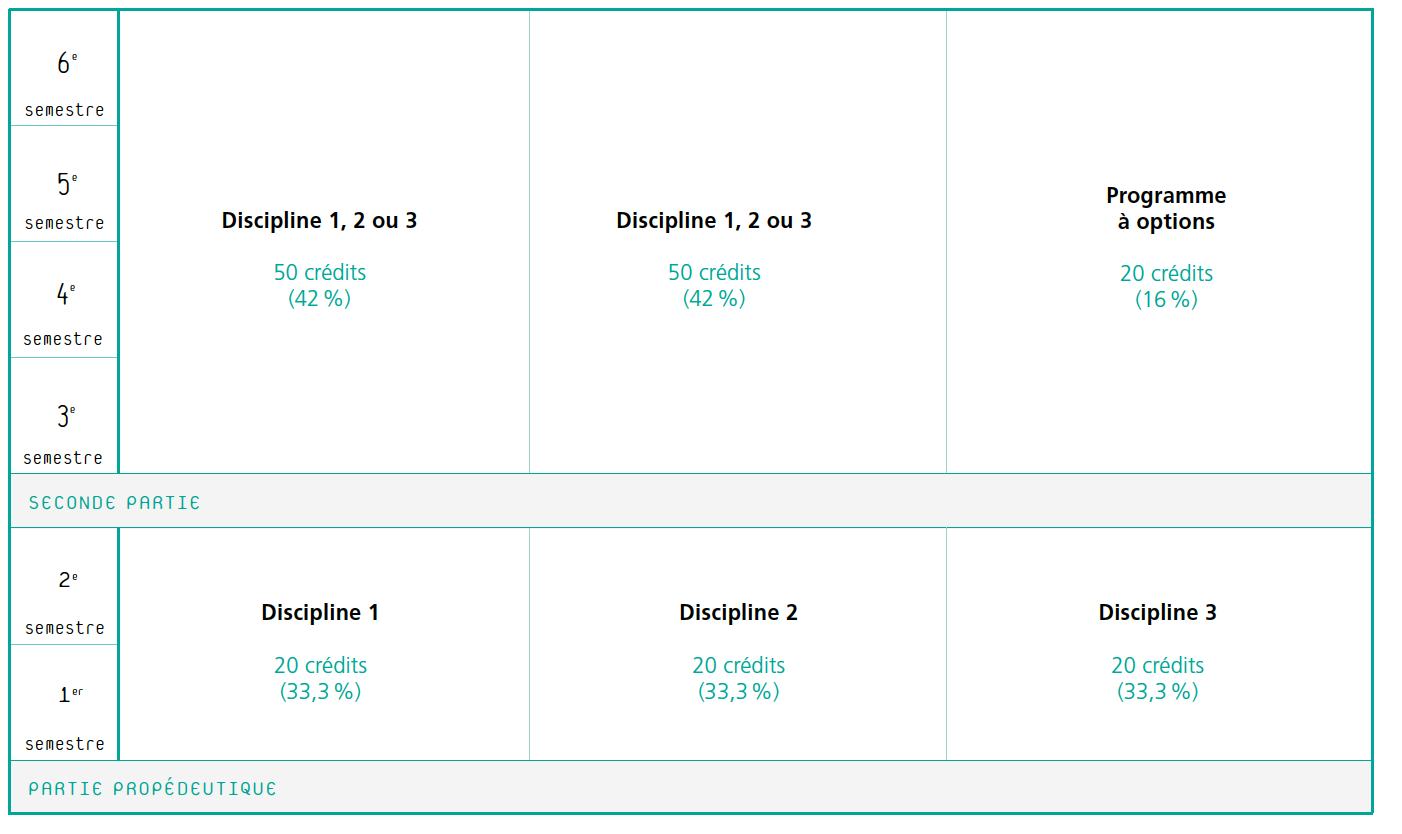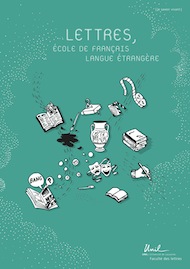The Faculty of Arts offers a wide range of disciplines, ranging from historical studies to theoretical approaches in the humanities, including the study of ancient and modern, national and international languages. Its courses cover currents of thought and the full range of cultural output, from literature and discourse in all their variety to the traces of ancient civilisations, film, photography, music, cartoons, video games and more.
With over 20 disciplines on offer in the Faculty (and therefore thousands of possible combinations), a study of the arts provides meaningful engagement with both the intellectual richness of the past and contemporary social realities. Students can also enhance their learning with disciplines offered by partner faculties, both at UNIL and in other universities in French-speaking Switzerland.
This multidisciplinary approach allows students to develop numerous skills, from the ability to analyse and summarise, to a critical mindset, a rigorous approach to interpretation, independence, organisation, argumentation, excellent oral and written communication, and the ability to convey complex knowledge.
Choice of disciplines
In the first year of the course you choose, from those available on the Faculty’s programme, three disciplines that will constitute the focus of your studies. One of the three disciplines may be chosen outside the Faculty, either in another Faculty within UNIL or in another university, on the basis of a predefinite list. These are referred to as “external disciplines”.
In the second part of the course, you continue your studies in two of your three disciplines. A further 20 ECTS credits are added to these two disciplines for an Options Programme. The latter may be used to acquire more credits in the third discipline (for example with a view to secondary I teaching), to complement one of the other disciplines, or to explore other fields of study.
Disciplines taught in the Faculty of Arts
- Ancient Greek
- Ancient History
- Archaeology
- English
- French as a Foreign Language (French for non-French speakers)
- German
- History
- History and Aesthetics of Film
- History of Art
- History of Religions
- Computer Science for the Humanities
- Italian
- Latin
- Linguistics
- Medieval French
- Modern French
- Philosophy
- Spanish
- Slavic Studies
- South Asian Languages and Cultures
External disciplines in other UNIL Faculties
- Geography (Geosciences and Environment)
- Psychology (Social and Political Sciences)
- Political Science (Social and Political Sciences)
- Social Sciences (Social and Political Sciences)
- Theological Studies (Theology and the Study of Religions)
External disciplines at other universities
- Arabic language, Literature and Civilisation (UNIGE)
- Armenian Language and Literature (UNIGE)
- Chinese Studies (UNIGE)
- Egyptology and Coptic (UNIGE)
- Ethnology (UNINE)
- Japanese Studies (UNIGE)
- Mesopotamian Studies (UNIGE)
- Modern Greek Language, Literature and Civilisation (UNIGE)
- Musicology (UNIFR or UNIGE)
- Prehistoric Archaeology and Ancient Mediterranean Archeology (UNINE)
- Prehistoric Archaeology and Anthropology (UNIGE)
- Rhaeto-Romanic (UNIFR)

Organiser
Faculty of Arts
Degree Awarded
Bachelor of Arts (BA)
ECTS Credits
180
Duration
6 semesters
Teaching Language
French and/or language of the discipline studied
Enrolment deadline
30 April. If you require a visa to study in Switzerland: 28 February.
Further information
Applications
Course description
Timetables
At UNIL, the following Master's programmes are open without further conditions to holders of the Bachelor of Arts (BA) :
- Master of Arts (MA)
- Master of Arts (MA) with Specialisation
- Master of Arts (MA) in Digital Humanities
- Master of Arts (MA) in the Study of Religions with or without Specialisation Focus on Interculturality (if your Bachelor includes History of Religions)
- The Masters programmes taught in the Faculty of Geosciences and Environment might be open, depending on the disciplines studied during the Bachelor
The multidisciplinary teaching, breadth of fields of study and variety of methodological approaches found in the Faculty of Arts offers you the opportunity to acquire numerous skills that are valued in the world of work.
By constantly appealing to your intellectual curiosity, a study of the arts encourages you not only to reflect coherently and in a structured way on the phenomena presented to you, but also to hone your critical thinking skills and your ability to analyse and summarise by focusing on researching pertinent information and reformulating it for a range of audiences. As a result, you will acquire solid drafting skills and the ability to construct an argument, as well as learning to communicate easily, both orally and in writing.
The wide range of course options available in the Faculty of Arts means you have to make numerous decisions and strengthen your sense of responsibility. You will develop strong, independent organisational skills and know how to adapt to a range of work contexts by handling several projects at the same time, demonstrating planning skills, flexibility and versatility.
Numerous career options are open to you thanks to the skills acquired during your studies. These depend partly on the choice of Master’s course.
Areas of activity
- Communication: journalism, audiovisual communications, public relations, translation and interpreting
- Arts: publishing, theatre, music, cinema: for example, management or promotion of a cultural institution, festival organisation or management of a collection of works
- Documentation and conservation: libraries, private and public archives, documentation centres or museums: for example, managing documents and highlighting their value, setting up exhibitions and designing educational materials or guided tours
- Teaching: public secondary schools, private schools and universities
- Research: research assistant, Swiss National Science Foundation, research centres (often for a limited period)
- Management and administration: municipal, cantonal and federal public services and businesses (especially in the tertiary sector)
If you are planning a teaching career in the public sector, you will need additional training from an Haute école pédagogique (teacher training college – HEP), either after your Bachelor of Arts course (for lower secondary teaching) or a Master of Arts (for upper secondary teaching).
Find out more:
- Teaching careers: a fact file on working as a teacher
- Becoming a teacher: information on teaching available on the Faculty of Arts website
- Courses available at the Haute école pédagogique du Canton de Vaud (Vaud Canton Teacher Training College)
In figures
Every two years, the Swiss Federal Statistical Office (OFS) conducts a survey on graduate employment, one year after students have completed their course. View the results for Arts graduates online:
- “Premier emploi après les études” (“First job after graduating”) survey on employment among Swiss university graduates
- De l’UNIL à la vie active (From UNIL to working life) – results of the survey for UNIL graduates specifically

